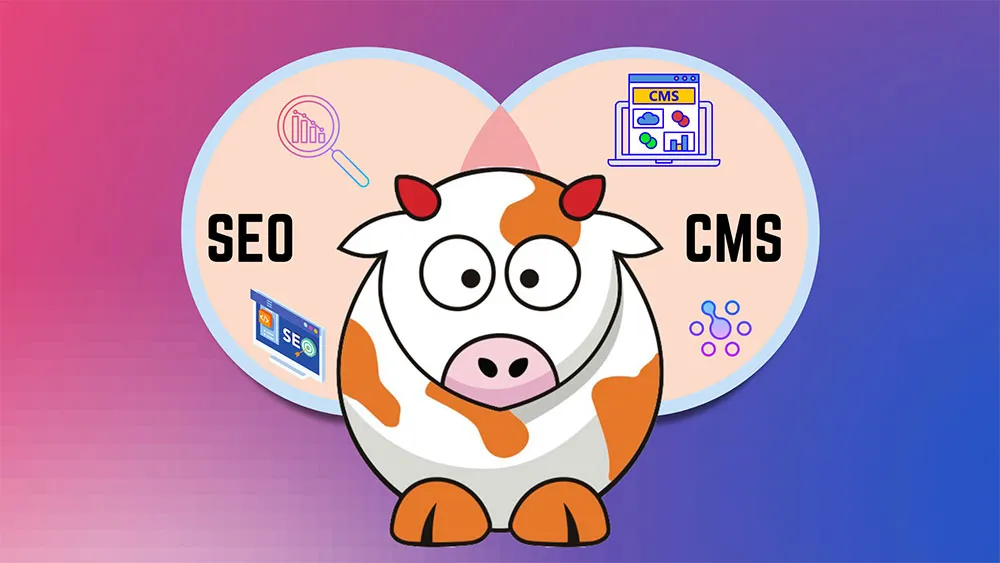SEO for beginners - A Helpful guide
By Bruce Klaic (MBA) - Head of Marketing Tuesday, April 11, 2023

As a digital marketer, your ultimate goal is to reach your target audience and convert them into customers. Search Engine Optimization (SEO) plays a crucial role in achieving this goal. SEO is the process of optimising your website to rank higher on search engines, making it easier for potential customers to find you. In this beginner's guide, we will discuss the basics of SEO for digital marketers.
Why is SEO Important for Digital Marketers?
SEO is essential for digital marketers because it helps drive organic traffic to their websites. The higher your website ranks on search engines, the more visible it becomes to potential customers. This increased visibility can lead to higher website traffic, better lead generation, and increased revenue. SEO is a long-term investment that can bring sustainable results to your business.
Common Misconceptions about SEO
There are several misconceptions about SEO that can lead to ineffective strategies. Here are some common misconceptions and the truths behind them:
SEO is a one-time fix: SEO is an ongoing process that requires regular monitoring and optimization to maintain its effectiveness. For example, if you optimise your website for certain keywords and then stop optimising, your rankings will likely decrease over time as search engine algorithms change and competitors optimise their websites.
SEO is all about keywords: While keywords are important for SEO, they are just one of many factors that affect website visibility on search engines. Other factors include website structure, content quality, backlinks, and user experience.
SEO is all about link building: While link building is an important part of SEO, it should be done in a natural and ethical way to avoid penalties from search engines. It is also important to focus on other aspects of SEO, such as website structure and content quality.
Good SEO Practices vs. Bad SEO Practices
There are good SEO practices that can improve website visibility and bad SEO practices that can harm website visibility. Here are some examples:
Good SEO Practices:
Creating high-quality content that meets the needs of your target audience: For example, if you run a fitness blog, you might create a series of in-depth articles on nutrition and exercise that provide value to your readers.
Optimising website structure and navigation for easy access to content: For example, you might organise your website's content into categories and subcategories that make it easy for users to find what they're looking for.
Using relevant keywords in titles, meta descriptions, and throughout website content: For example, if you run a business that sells handmade soap, you might include relevant keywords such as "handmade soap" and "natural soap" in your product descriptions.
Building high-quality backlinks from authoritative sources: For example, you might reach out to industry influencers and ask them to link to your website in their content.
Ensuring website speed, mobile responsiveness, and site architecture are optimised: For example, you might use a website speed testing tool to identify and fix any issues that are slowing down your website.
Bad SEO Practices:
Keyword stuffing and overuse of irrelevant keywords: For example, if you include a long list of irrelevant keywords at the bottom of your website's pages, search engines may penalise you for keyword stuffing.
Using hidden text or links to manipulate search engine rankings: For example, if you hide text or links on your website using a font colour that matches the background, search engines may penalise you for trying to manipulate their algorithms.
Buying links or participating in link schemes: For example, if you pay a website to link to your website or participate in a link exchange scheme, search engines may penalise you for trying to manipulate their algorithms.
Duplicating content across multiple pages or domains: For example, if you copy and paste the same content from one page to another, search engines may penalise you for duplicate content.
Cloaking or showing different content to search engines and users: For example, if you show search engines one version of your website and users another version, search engines may penalise you for cloaking.
What Someone Who Is Not Doing SEO Should Know
Even if you are not actively doing SEO, there are several reasons why you should be aware of SEO and its impact on your website:
Organic search is a major source of website traffic: Organic search accounts for a significant portion of website traffic, and without SEO, your website may not be visible to potential customers. For example, if someone searches for "handmade soap" and your website does not appear on the first page of search results, they may never find your website.
SEO can improve website user experience: Good SEO practices such as website structure and navigation optimization can improve website user experience and lead to better engagement and conversion rates. For example, if your website is well-organised and easy to navigate, users are more likely to stay on your website and make a purchase.
SEO is an ongoing process: Even if you are not actively doing SEO, your website can still benefit from regular maintenance and optimization to ensure its visibility on search engines. For example, you might periodically review your website's content to ensure it is up-to-date and relevant to your target audience.
Common SEO Tools for Digital Marketers
Digital marketers can use a range of SEO tools to improve website visibility and track their progress. Here are some commonly used tools and scenarios in which they might be used:
Google Analytics:
This is a free web analytics tool that allows you to track website traffic, user behaviour, and conversion rates. You might use Google Analytics to answer questions such as "Which pages on my website are receiving the most traffic?" or "What is the bounce rate for visitors coming from a particular source?"
Google Search Console:
This is a free tool provided by Google that helps you monitor and optimise your website's presence on search engines. You might use Google Search Console to answer questions such as "Which keywords is my website ranking for?" or "Are there any errors or warnings that I need to address on my website?"
Moz:
This is a paid SEO tool that offers a range of features such as keyword research, site audits, and backlink analysis. You might use Moz to answer questions such as "What are the top-performing keywords for my industry?" or "Which websites are linking to my competitors?"
SEMrush:
This is a paid SEO tool that provides features such as keyword research, site audit, backlink analysis, and competitor analysis. You might use SEMrush to answer questions such as "How can I improve my website's on-page SEO?" or "What are the top-performing keywords for my competitors?"
Ahrefs:
This is a paid SEO tool that offers features such as backlink analysis, competitor analysis, and keyword research. You might use Ahrefs to answer questions such as "How can I improve my website's backlink profile?" or "What are the most valuable keywords for my industry?"
Yoast SEO:
This is a free WordPress plugin that helps you optimise your website's content for search engines. You might use Yoast SEO to answer questions such as "Am I using relevant keywords in my website's content?" or "Are my website's meta descriptions optimised for search engines?"
SEO is a vital aspect of digital marketing, and every digital marketer must understand its basics to improve their website's visibility on search engines. It is important to remember that SEO is an ongoing process that requires regular maintenance and optimization to ensure its effectiveness. While there are many strategies and tools available to improve website visibility, it is also important to focus on providing high-quality content that meets the needs of your target audience. With a strong SEO strategy and a commitment to providing value to your customers, you can achieve long-term success in digital marketing.
Learn more about how to do SEO


